The Virtues and Significance of the First Ten Days of Dul Hijjah
Allah, the Almighty, out of His mercy, He has distinguished certain times and seasons with greater virtues and increased rewards to motivate believers, renew their determination, and encourage them to compete in good deeds and seek divine blessings. Among these distinguished times are the first ten days of Dul Hijjah, which are endowed with numerous virtues and special characteristics.
Significance in the Quran and Hadith
Allah swears by these days in the Quran, highlighting their importance: "By the dawn, And [by] ten nights, And [by] the even [number] and the odd" (Al-Fajr 89:1-3). Many scholars interpret these "ten nights" to refer to the first ten days of Dul Hijjah.
The Prophet Muhammad (peace be upon him) attested to the greatness of these days, stating that righteous deeds performed during this time are more beloved to Allah than those performed at any other time. Ibn Abbas (may Allah be pleased with him) reported that the Prophet (peace be upon him) said: "There are no days during which righteous deeds are more beloved to Allah than these days." The companions asked, "Not even Jihad in the cause of Allah?" He replied, "Not even Jihad in the cause of Allah, except in the case of a man who went out to fight giving himself and his wealth up for the cause, and came back with nothing" (Sahih al-Bukhari).
In another hadith, Ibn Umar (may Allah be pleased with him) reported: "There are no days greater in the sight of Allah and in which righteous deeds are more beloved to Him than these ten days, so during this time, recite a great deal of Tahleel (saying Laa ilaaha ill-Allah), Takbeer (saying Allahu Akbar) and Tahmeed (saying Alhamdu Lillaah)" (Musnad Ahmad).
The first ten days of Dul Hijjah are special because they combine the main forms of worship: prayer, fasting, charity, and Hajj, which cannot be achieved in any other days.
Scholars have discussed the comparison between these ten days and the last ten days of Ramadan. One balanced view is that the days of Dul Hijjah are superior to the days of the last ten of Ramadan, while the nights of the last ten of Ramadan are superior to the nights of Dul Hijjah due to the inclusion of Laylat al-Qadr among the nights of Ramadan.
The Day of Arafah
Among these ten days is the Day of Arafah, about which the Prophet (peace be upon him) said: "There is no day on which Allah frees more people from the Hell-Fire than the Day of Arafah. He comes close and expresses His pride to the angels, saying: 'What do these people want?'" (Sahih Muslim). It is a day of forgiveness of sins, and fasting on this day expiates the sins of the past year and the coming year.
In another hadith reported by Ibn Khuzaymah, Ibn Hibban, Al-Bazzar, Abu Ya'la, and Al-Bayhaqi from Jabir (may Allah be pleased with him) from Prophet:
"There is no day better in the sight of Allah than the Day of Arafah. Allah descends to the nearest heaven and boasts to the inhabitants of the heavens about the people of the earth, saying: 'Look at My servants who have come to Me disheveled and dusty, coming from every distant pass, hoping for My mercy and not having seen My punishment. There is no day on which Allah frees more people from the Fire than the Day of Arafah.'"
Imam An-Nawawi, in his commentary on "Sahih Muslim," said: "This hadith clearly indicates the virtue of the Day of Arafah, and it is indeed so." An-Nawawi reconciled the hadiths that highlight the virtue of the Day of Arafah with those that highlight the virtue of Friday, such as the hadith of the Prophet (peace be upon him) which states: "The best day on which the sun has risen is Friday" (Sahih Muslim), by explaining that the hadiths indicating the virtue of the Day of Arafah suggest that it is the best day of the year, while the hadiths indicating the virtue of Friday imply that Friday is the best day of the week.
It was also narrated that Salim ibn Abdullah ibn Umar saw a beggar asking on the Day of Arafah and said: "O incapable one! On this day, you ask from other than Allah?"
The Day of Sacrifice
Also included in these ten days is the Day of Sacrifice (Yawm al-Nahr), which the Prophet (peace be upon him) declared as the greatest day in the sight of Allah: "The greatest day in the sight of Allah, may He be blessed and exalted, is the Day of Sacrifice, then the day of resting (Yawm al-Qar)" (Sunan Abu Dawood). Dul Hijja tenth which is first day of Eid Al-Adha is know as Yawm Al-Nahr.
Yawm al-Qar is the day following the Day of Sacrifice, which is the eleventh day of Dul Hijjah, when pilgrims settle in Mina after performing the Tawaf al-Ifadah and the sacrificial rituals.
Public Declaration of Takbeer these days:
Starting from the first day of Dul Hijjah, Muslims are encouraged to declare the Takbeer (saying Allahu Akbar) in public places, to proclaim the greatness of Allah. This practice continues until the last day of the Tashreeq days.
It is recommended to openly declare the unrestricted Takbeer (Takbeer Mutlaq) from the first day of Dul Hijjah in mosques, homes, streets, markets, and other places. Men should say it loudly, while women should say it quietly, as a proclamation of the greatness of Allah. This practice continues until the afternoon of the last day of Tashreeq.
This is a neglected Sunnah that should be revived during these days. It has been reported by Imam Bukhari that Ibn Umar and Abu Hurairah (may Allah be pleased with them) used to go out to the market during the first ten days of Dul Hijjah, reciting Takbeer, and the people would recite Takbeer along with them." He also said: "Umar would recite Takbeer in his tent in Mina, and the people in the mosque would hear him and recite Takbeer, and the people in the markets would also recite Takbeer until Mina echoed with the sound of Takbeer. Ibn Umar would recite Takbeer during those days in Mina, after prayers, on his bed, in his tent, in his gathering, and while walking, during all those days."
As for the restricted Takbeer (Takbeer Muqayyad), which is recited after the obligatory prayers, it begins from the Fajr prayer on the Day of Arafah and continues until the Asr prayer on the last day of Tashreeq.
Allah says: "And remember Allah during the appointed days" (Al-Baqarah 2:203). The Prophet (peace be upon him) also said: "The days of Tashreeq are days of eating, drinking, and remembering Allah" (Sahih Muslim).
Other Recommended Acts of Worship During These Days
Sincere Repentance: Returning to Allah with sincere repentance, adhering to His commands, and avoiding prohibitions is essential, as Allah says: "And turn to Allah in repentance, all of you, O believers, that you might succeed" (An-Nur 24:31).
Performing Hajj: For those who are able, performing Hajj is one of the greatest acts of worship. The Prophet (peace be upon him) said: "The most excellent Jihad is the performance of Hajj" (Sahih al-Bukhari).
Maintaining Obligatory Acts: Ensuring that obligatory acts of worship are performed with excellence and attention to their etiquettes is fundamental. The Prophet (peace be upon him) said in a hadith Qudsi: "My servant draws not near to Me with anything more loved by Me than the religious duties I have enjoined upon him..." (Sahih al-Bukhari).
Increasing Supererogatory Acts: Engaging in additional voluntary acts of worship such as extra prayers, recitation of the Quran, supplication, giving charity, and other good deeds is highly encouraged. The Prophet (peace be upon him) said: "Increase in these ten days, the recitation of Tahleel, Takbeer, and Tahmeed" (Musnad Ahmad).
Fasting, especially on Day of Arafah: Fasting during these ten days is highly recommended, particularly on the Day of Arafah. The Prophet (peace be upon him) said: "Fasting on the Day of Arafah expiates the sins of the previous year and the coming year" (Sahih Muslim).
Offering Sacrifice (Qurbani): Performing the sacrificial act of Qurbani is a confirmed Sunnah for those who can afford it. The Prophet (peace be upon him) consistently performed this act and encouraged it.
The first ten days of Dul Hijjah are a precious opportunity for Muslims to draw closer to Allah through various forms of worship. These days are fleeting, and the truly fortunate are those who recognize their value and strive to fill them with acts of righteousness. By doing so, they attain Allah's mercy and reward in this world and the Hereafter.
Disclaimer
The views expressed in this article are the author’s own and do not necessarily mirror Islamonweb’s editorial stance.

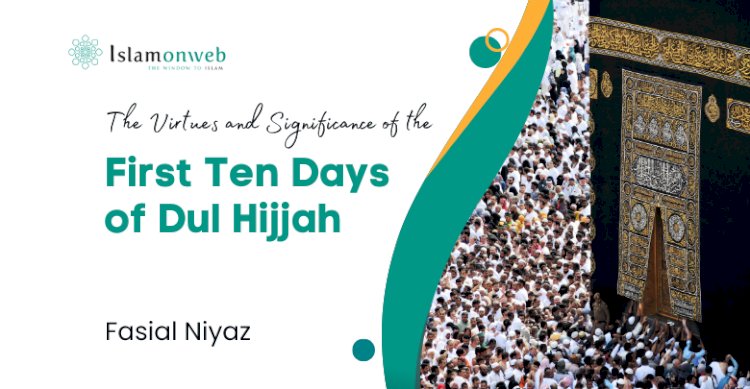


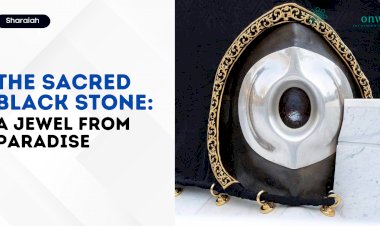
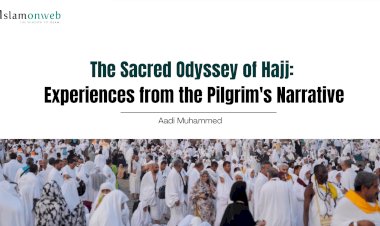
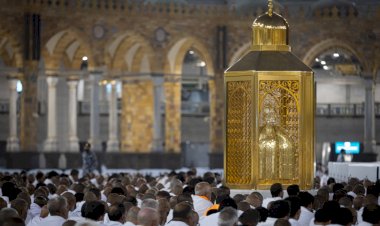
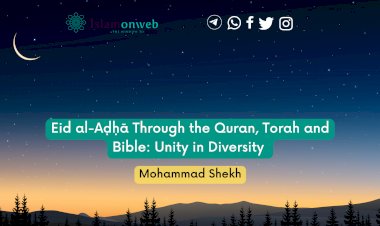
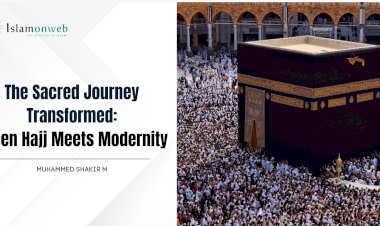















Leave A Comment